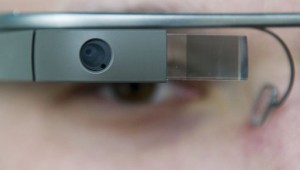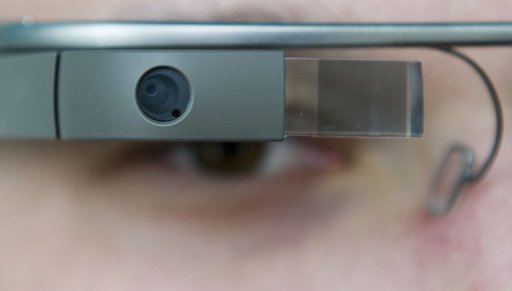
By Glenn Chapman (AFP) – SAN FRANCISCO — Facebook and Twitter launched applications Thursday for Google glasses as developers rushed to learn more about tailoring software for the Internet-linked eyewear yet to hit the market.
“Built by Facebook, this app allows you to upload photos from Google Glass directly to your Facebook timeline,” Erick Tseng, head of mobile products at the social network, said in a message posted from the Google developers conference.
“You can also add an optional photo description, just by speaking it.”
Tseng’s Facebook page displayed an image evidently taken in a packed Glass session at the gathering and was tagged as the first public post to the social network using the application built for the eyewear.
“Can’t wait to start seeing Google Glass photos in my News Feed!” Tseng said.
Globally popular messaging service Twitter also introduced an application for Glass.
Twitter for Google Glass let people share pictures or text messages using the glasses, according to engineering manager Shiv Ramamurthi.
Ramamurthi demonstrated his point by tweeting an image from one of the array of sessions devoted to providing developers with insights and tools for making software for Glass. He gave the picture the hashtag #throughglass.
“In addition to sharing photos, you can also keep up with the people you follow on Twitter through notifications,” Ramamurthi said. “As always, you can reply to, retweet or favorite these Tweets.”
Several major news organizations have also tailored applications for Glass, which has only been made available to developers and a limited selection of “explorers” who paid $1,500 each for the eyewear.
Google Glass was a common sight at the California-based Internet giant’s annual developers conference, which continues here through Friday.
Software savants at the gathering shared visions of games, weather reports, news and more delivered to the Internet-linked eyewear.
Many of the 6,000 developers attending an annual Google I/O event in San Francisco sported Glass in what was unofficially deemed the largest ever gathering of Glass wearers.
Envisioned uses ranged from practical tasks such as shopping or delivering local weather reports to sharing real time video streams of riding cable cars or playing augmented reality games in which the world is the board.
Glass lets wearers take pictures, record video, send messages, or perform other tasks with touch controls or by speaking “Okay Glass” followed by a command.
Glass connects to the Internet using Wi-Fi hot spots or, more typically, by being wirelessly tethered to mobile phones. Pictures or video can be shared through the Google+ social network.
Google co-founder and chief Larry Page depicted Glass as part of an ongoing effort to get computers “out of the way” so people can focus on lives enriched by what the Internet has to offer.
“We want to make sure we are building experiences that make people really happy,” Page said while speaking about Glass.
“We are relying on you to make happy users,” he told developers at the conference. “Ultimately, I think a lot of your experiences will move to Glass.”
Google executive chairman Eric Schmidt said recently that it will take “a while” before consumer versions of Glass are available.




